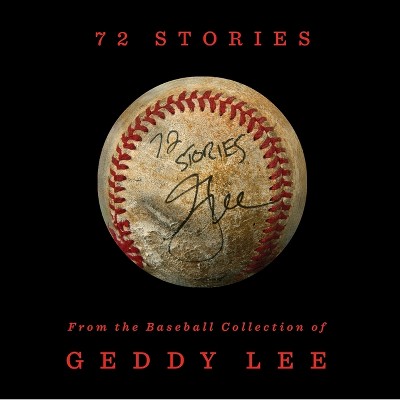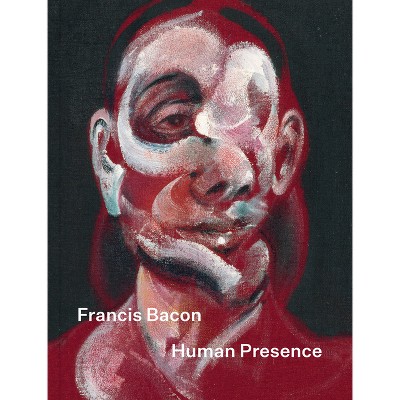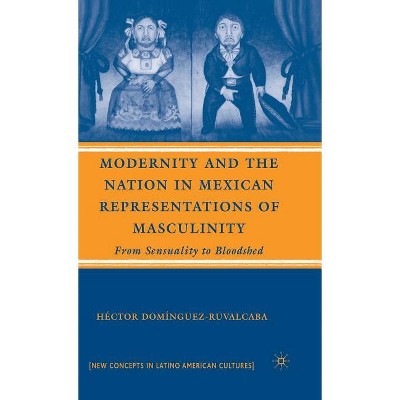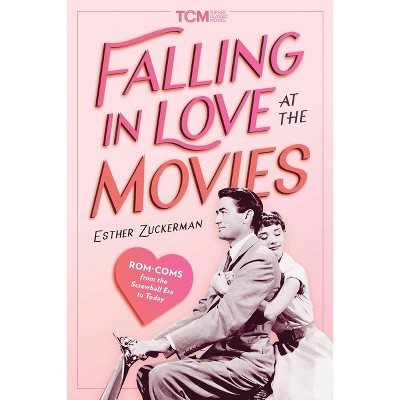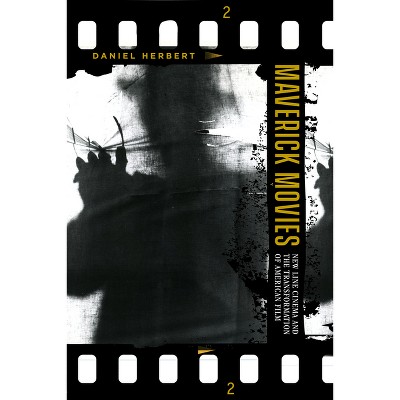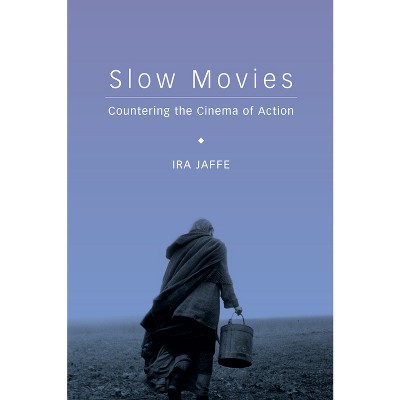Sponsored

Movies, Masculinity, and Modernity - (Controversies in Science) by Steve Derne (Hardcover)
In Stock
Sponsored
About this item
Highlights
- Men in India are attracted to Hindi films partly because of their attraction to depictions of modern lifestyles.
- About the Author: STEVE DERNÉ is Associate Professor of Sociology at SUNY-Geneseo.
- 224 Pages
- Performing Arts, Film
- Series Name: Controversies in Science
Description
About the Book
Men in India are attracted to Hindi films partly because of their attraction to depictions of modern lifestyles. Dern^D'e argues that films help men handle their ambivalence about modernity by rooting their sense of Indianness in women's acceptance of traditional food habits, clothing, and gender subordination. The book is one of the first ethnographic studies of filmgoing and one of the first to focus on mainstream male audiences.
Dern^D'e considers the effects of films' eroticization of domination and submission on men's sexuality. The study provides ethnographic support for Mulvey's argument that filmgoing prompts men to make women the object of a controlling look. The book shows how films invent new ideologies of male dominance by associating Indianness with limitations on women's movements, and by portraying men as rational and modern, and women as emotional and traditional. One of the first ethnographic studies of filmgoing and one of the first to focus on mainstream male audiences, the book contributes to a rethinking of some key arguments in media studies. While media studies have rightly focused on how films prompt men to gaze at women, this study shows that films simultaneously encourage men to see themselves as the object of controlling looks. Dern^D'e exposes as one-sided the scholarly emphasis on how Indians value hierarchy and group guidance, asserting that Indian films instead celebrate individualism and love.
Book Synopsis
Men in India are attracted to Hindi films partly because of their attraction to depictions of modern lifestyles. Dern^D'e argues that films help men handle their ambivalence about modernity by rooting their sense of Indianness in women's acceptance of traditional food habits, clothing, and gender subordination. The book is one of the first ethnographic studies of filmgoing and one of the first to focus on mainstream male audiences.
Dern^D'e considers the effects of films' eroticization of domination and submission on men's sexuality. The study provides ethnographic support for Mulvey's argument that filmgoing prompts men to make women the object of a controlling look. The book shows how films invent new ideologies of male dominance by associating Indianness with limitations on women's movements, and by portraying men as rational and modern, and women as emotional and traditional. One of the first ethnographic studies of filmgoing and one of the first to focus on mainstream male audiences, the book contributes to a rethinking of some key arguments in media studies. While media studies have rightly focused on how films prompt men to gaze at women, this study shows that films simultaneously encourage men to see themselves as the object of controlling looks. Dern^D'e exposes as one-sided the scholarly emphasis on how Indians value hierarchy and group guidance, asserting that Indian films instead celebrate individualism and love.Review Quotes
.,."With audience studies predominantly studying women, a study showing how patriarchal mechanisms operate through emotion and sociality amongst male audiences is very welcome. Another achievement of Derne's book is his participant observation of filmgoing itself; certainly the first such effort in India. He shows how cinema audiences interact with the film screen in India: the shouting and cheering are crucial the male experience of film."-Critical Sociology
"Cinema is such an important industry and cultural influence in India that studies of films and audiences are almost irresistibly intriguing. It is valuable and interesting to get informed opinions about this field of life. Steve Derne's ethnographics study Movies, Masculinity, and Modernity: An Ethnography of Men's Filmgoing in India is no exception....[v]ery enlightning and instructive."-Contemporary South Asia
?...With audience studies predominantly studying women, a study showing how patriarchal mechanisms operate through emotion and sociality amongst male audiences is very welcome. Another achievement of Derne's book is his participant observation of filmgoing itself; certainly the first such effort in India. He shows how cinema audiences interact with the film screen in India: the shouting and cheering are crucial the male experience of film.?-Critical Sociology
?Cinema is such an important industry and cultural influence in India that studies of films and audiences are almost irresistibly intriguing. It is valuable and interesting to get informed opinions about this field of life. Steve Derne's ethnographics study Movies, Masculinity, and Modernity: An Ethnography of Men's Filmgoing in India is no exception....[v]ery enlightning and instructive.?-Contemporary South Asia
?In addition to its cultural insights, the study adds to the growing body of research that emphasizes the diversity of Indian ways of thinking, especially how Indian men balance alternative notions with mainstream traditions.?-Mass Phenomena
"In addition to its cultural insights, the study adds to the growing body of research that emphasizes the diversity of Indian ways of thinking, especially how Indian men balance alternative notions with mainstream traditions."-Mass Phenomena
..."With audience studies predominantly studying women, a study showing how patriarchal mechanisms operate through emotion and sociality amongst male audiences is very welcome. Another achievement of Derne's book is his participant observation of filmgoing itself; certainly the first such effort in India. He shows how cinema audiences interact with the film screen in India: the shouting and cheering are crucial the male experience of film."-Critical Sociology
About the Author
STEVE DERNÉ is Associate Professor of Sociology at SUNY-Geneseo. He received the Society for Psychological Anthropology's 1991 Stirling Award for his work linking family structure and self conceptions in India.Shipping details
Return details
Frequently bought together

Trending Non-Fiction







